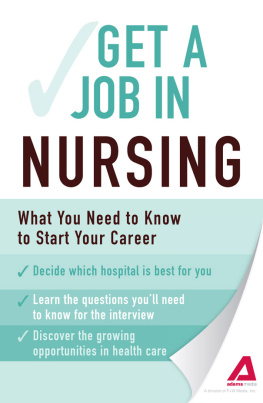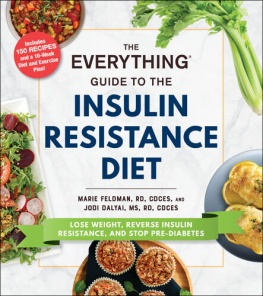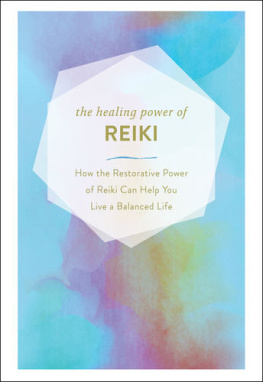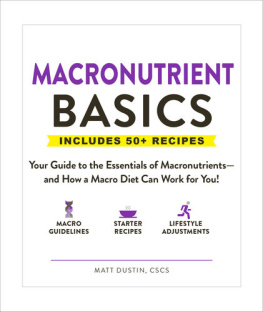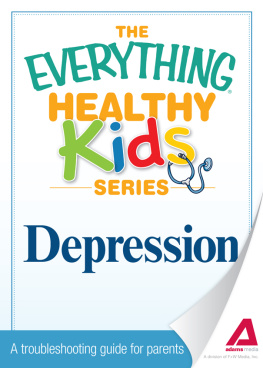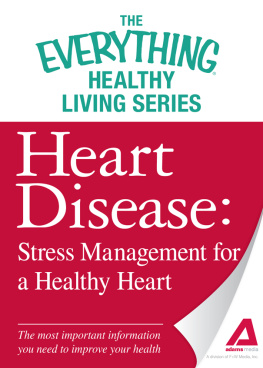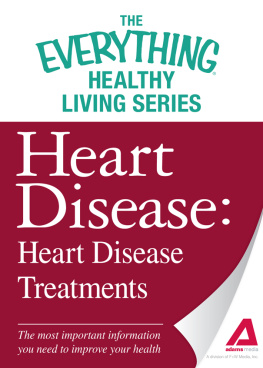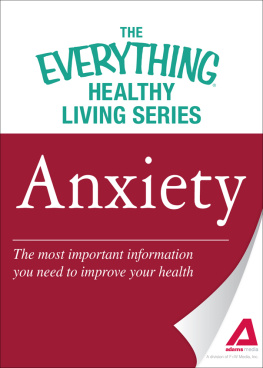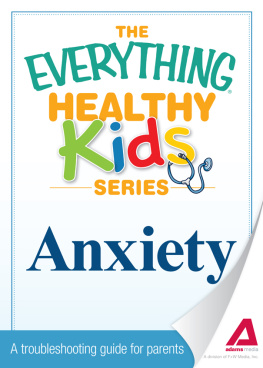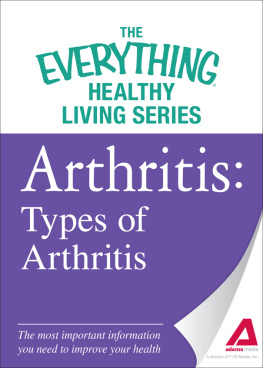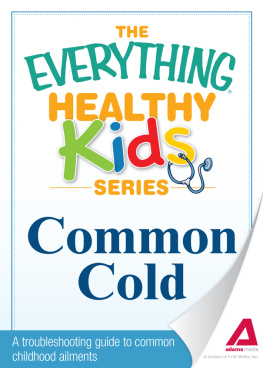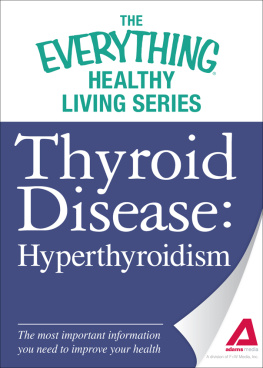Get a Job in Nursing
What You Need to Know to Start Your Career
Adams Media, a division of F+W Media, Inc.
Avon, Massachusetts
Contents
Introduction
For more than 10 years, millions of readers have trusted the bestselling Everything series for expert advice and important information on business topics ranging from practice interviews and resumes to personal finance and investments. Packed with the most recent, up-to-date data, Get a Job in Nursing helps you choose the right job, provides you with the tools to get that job, and shows you how to set your future goals. This book focuses on only the information you need to get a job.
If youve picked up this book, chances are you are either a recent graduate facing the stiff competition in a crowded field or a veteran in the field looking for a leg up on the competition.
Nursing is one of the most physically and emotionally demanding careers. You must have a great deal of physical stamina and a strong sense of humor to perform your daily duties. Nurses combine the art of caring with a broad scientific knowledge base to provide care, promote wellness, and improve the lives of patients. It takes strong communication skills, both written and oral, combined with a scientific mind and a warm heart and soul to form the foundation for a good nurse. Along with all of these difficult tasks, the job market has become very competitive. This guide is meant to help you get a new job because, as a nurse, you already have enough to worry about.
If youd like to learn more about nursing, check out The Everything New Nurse Book, 2nd Edition , available in print (978-1- 4405-2687-9) and eBook (978-1- 4405-2760-9) formats.
Deciding Where to Work
Even if you have a very specific idea of where you want to work and what you would like to specialize in, you will be well served to have a well-rounded background of med-surg (medical-surgical) experience to build on if possible.
Its Not Easy to Find a Job
The economic downturn that began in 2000 and became a recession by 2008 adversely affected the health care industry in many ways. Job losses and dissolving 401k and other retirement funds caused many older nurses to delay retirement or to return to the field from an inactive status or retirement. Employers grabbed up these experienced nurses in lieu of hiring new grad nurses.
Health care jobs were already becoming scarce because increasing unemployment decreased the numbers of people with health care insurance. In uncertain times, elective care is often put on hold. And even in the face of a pandemic from the H1N1 flu virus, Americans scrambled to do everything possible to stay well and avoid the high costs of health care. Consequently, there were far fewer hospitalizations from complications of the flu or other illnesses. In a majority of facilities, lower numbers of patients led to a decreased need for more and/or new nurses. This has created a false sense of security that the nursing shortage has ended when indeed it has not.
As the economy recovers, the Patient Protection and Affordable Care Act is implemented, and more people have access to health care coverage, the need for nurses will grow once again. This time it could possibly grow exponentially and almost overnight.
With 1 million more potential patients having access to health care, the need for more nurses will expand. And as older nurses have the opportunity to retire with financial stability, there may be a mass exodus.
Until that time, new grads may be hard pressed to find jobs. Hospitals have a renewed power to pick and choose who they want instead of a desperate need for just a warm body to provide nursing care. With new mandates to improve the quality of care or face huge fines, hospitals will continue to look for nurses with higher levels of education as well as experience.
If youre a new grad with less than a BSN-prepared education, this may be the perfect time to continue your education. The future of nursing is going to be about expanding roles in patient education and providing primary care. For example, the need for nurse practitioners will grow faster than most.
You may also have to consider looking for employment in less popular, less populated areas. Markets such as large metropolitan areas are saturated and are likely to remain so for quite some time despite the economy. Many small towns and rural areas are in great need of nurses. After gaining some experience in a year or two, you may find yourself much more valuable in the location you prefer.
You may also have to consider less popular non-hospital settings such as clinics, long-term care, community or public health, mental health, or rehabilitation. Some suggest working as a CNA or finding a non-nursing job in the setting you prefer so that you can become known.
Why Choose a Large Teaching Hospital?
If at all possible, one of the best places to train is a hospital associated with a medical school. By the same token, your first job as a nurse in one of these facilities can be one of the best experiences you may have in your career. Patients in a teaching hospital are primed for students, and these patients have a good understanding of the culture in a learning environment. These facilities often have more funds available to afford state-of-the-art equipment. The doctors are usually well versed on the latest in procedures and treatments. In addition, you will be exposed to patients with far more complex diseases and those having experimental treatments.
Start General Then Specialize
Once you have gained a strong foundation of experience in basic nursing care for adults, you can branch out into more specialized care, giving you options to go anywhere in your career. You will always have the confidence that you have developed your skills and seen and done a wide variety of procedures successfully. If you dont have this opportunity, opt for the most general experience you can get in your area. No matter how much experience you may have gained in school, a good solid foundation as a generalist will give you the tools to build your career in any area of nursing.
This general background will give you both the experience and the credibility to be able to move laterally and to move upward. The additional advantage is that even after a long career in a highly specialized area, most nurses with a strong generalist foundation will find the courage to move into an entirely new realm much more often than those who headed straight to their specialty area after graduation and stayed there for ten years. These nurses tend to feel trapped because they have been pigeonholed and dont have a general background to fall back on.
Essential
Not all new nurses will find jobs in general med-surg nursing, but if you have an opportunity to do it first, grab it. If not, try to float through as a per diem nurse. You wont regret it. Some nurses feel that it is not necessary to have a years experience in med-surg nursing. However, if you want to eventually move into something like home health or another field in which you will have a lot of autonomy, you need a strong general background.
One of the reasons most nurses leave nursing is because of burnout and feeling trapped with nowhere to go because they are too specialized and making a change would take too much re-education. This seems to be especially true for those wishing to move from something like pediatrics into adult care. The nurse with the general med-surg background has many opportunities to move directly out of the hospital into such areas as clinics, home health, and case management. With some additional training or internship in a specialized area, they can move into a multitude of areas such as ICU, pediatrics, rehab, oncology, and womens health and clinical trials.

